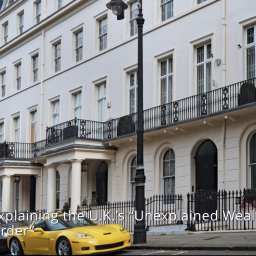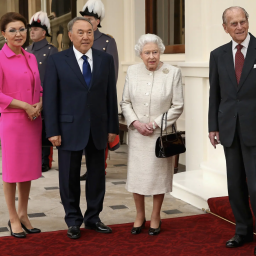When it comes to unexplained wealth orders (UWOs), the UK’s much-vaunted tool to tackle criminal wealth, 2020 was a rollercoaster.

It saw the National Crime Agency’s (NCA) first failure to defend in court the issuance of several UWOs against properties owned by a politically connected Kazakh family, but also its first success in confiscating £10 million worth of real estate from an alleged organised crime figure who was compelled to explain his wealth.
Now that UWOs have moved from the realm of theory to practice, their potential and limitations are increasingly apparent, although still widely misunderstood. It is inevitable that more UWOs will follow this year, and clarity about what they are and what they do is key to keeping both successes and setbacks in proper perspective.
HOW DO UWOS OPERATE?
A common misconception is that a UWO requires the person on whom it is served – the respondent – to prove the legitimate origins of one’s assets or face their confiscation. This is only sometimes the case.
To begin with, there are several requirements that must be satisfied for a UWO to be issued, as laid out in the Proceeds of Crime Act 2002. These include there being a property worth over £50,000 whose provenance is unexplained, in that there are ‘reasonable grounds for suspecting that the known sources of the respondent’s lawfully obtained income would have been insufficient’ to obtain it.
The respondent must be either a high-ranking public official (‘politically exposed person’) from outside the European Economic Area or be suspected of links to organised crime.
Once issued, a UWO compels the disclosure of certain information about how the respondent could afford the property. In case of non-compliance, the property is presumed to be liable to civil recovery, the UK’s term for confiscation in the absence of criminal conviction. In that sense, the burden of proving the legitimate origin of the property shifts onto the respondent.
Crucially, an unconvincing response does not amount to non-compliance. The legislation states that ‘purported compliance’ is to be treated as compliance, and when pressed on the meaning of this admittedly abstruse provision in Parliament, Baroness Williams, then minister of state at the Home Office, explained: ‘Given the severe consequences of not complying, it is right that this rebuttable presumption should not apply to a person who purports to provide a response’.
As barrister James Mather notes, not everything can be portrayed as purported compliance, and ‘simply serving a blank document on time’ will not fly, but beyond that it remains to be seen where the courts will draw the boundary.
One must of course bear in mind that providing false information in response to a UWO is a criminal offence, but conviction will require proving the offence beyond reasonable doubt, whereas the raison d’être of UWOs is precisely to facilitate law enforcement action where little evidence is otherwise available.
The UWO is therefore anything but a straightforward means of enabling the confiscation of criminal proceeds. It is much rather like a hybrid beast with the head of a disclosure order and the body of a civil recovery tool.
In fact, the Home Office’s Code of Practice calls it ‘an investigation tool … intended to assist in building evidence’. It also suggests the law enforcement agency should consider ‘whether alternative tools of investigation could be used in obtaining any relevant documents and information’, which is hardly the language one would use about an instrument expected to produce a seismic shift in the country’s response to economic crime.
EXPERIENCE TO DATE
As of now, 15 UWOs in four cases are a matter of public record. The inaugural UWO case involves Zamira Hajiyeva, whose husband used to chair an Azerbaijani state-owned bank and who received considerable media attention for reportedly spending £16 million in Harrods. Her attempts to have the UWOs discharged failed, with the Supreme Court refusing permission to appeal in January 2021. We can expect to see before long whether her response to the UWO – or a failure to provide one – will result in civil recovery proceedings.
In contrast, Dariga Nazarbayeva, the daughter of Kazakhstan’s ex-president and until recently the chair of the country’s Senate, was more successful in UK courts. In that instance, the NCA obtained UWOs in relation to UK real estate that it thought had been purchased by the late Rakhat Aliyev, Nazarbayeva’s ex-husband and convicted criminal. The UWOs were served on a professional trustee and four overseas corporate entities that were the legal owners of the properties.
The NCA received representations that Aliyev himself had little to do with the properties and their ultimate beneficial owners were Nazarbayeva and her son, but nonetheless insisted on compliance with the UWOs. In quashing the UWOs, the High Court effectively ruled that the NCA was wrong to serve them on the professional trustee and corporate entities involved – an issue that cannot be fully explored in this piece but has, in the words of Kennedy Talbot, ‘the capacity seriously to derail the utility of UWOs in cases where they are most needed’.
The NCA’s most successful UWO experience so far was with Mansoor Mahmood Hussain, a businessman in Leeds with reported links to organised crime. Having unsuccessfully sought to challenge the UWO, he then submitted a 76-page statement that ‘inadvertently gave NCA investigators clues to make a bigger case against him’ and prompted him to surrender assets to the tune of £10 million in settlement. One case alone is not representative, but RUSI’s Helena Wood has argued cogently why UWOs may consistently prove more efficacious in organised crime cases than in overseas corruption ones:
[Organised criminals] are less likely [than overseas politicians] to use complex structures, they’re less likely to need a veneer of respectability as they operate and are less likely to want to reveal the kind of greater [expanse] of their criminal empire, as happened in the Mansoor Hussain case.
WHAT NEXT?
There is no doubt that there are further UWO cases in the pipeline, and we are likely to observe three trends. First, when a UWO can be issued will remain a hotly contested topic and continue to be subject to litigation. Second, we will, at some point, see courts grappling with the meaning of failing to comply with a UWO, which triggers the presumption that the property is liable to confiscation. Lastly, not every UWO will result in an attempt to confiscate the assets, which is a feature – not a bug – of the UK’s regime given its focus on ‘information gathering’.
In the meantime, global interest in the UK’s UWO provisions abroad remains high. The Hudson Institute’s Kleptocracy Initiative recommends that US Congress consider introducing UWOs, and a similar proposal is pending before the Legislature of the British Virgin Islands. These are worthwhile ideas, but caution should be taken in selecting which country to emulate.
As explained more fully in a report submitted to Canada’s Commission of Inquiryinto Money Laundering in British Columbia by this author together with Helena Wood and Tom Keatinge, the UK’s UWO model is highly idiosyncratic and less intrusive than comparable Australian legislation, which makes the UK legislation more human rights-friendly but presents effectiveness trade-offs. The Irish approach, another frequent international comparator, is also different in significant respects.
The jury is still out on whether the UK got it right, and 2021 will bring us a step closer to knowing the answer.











